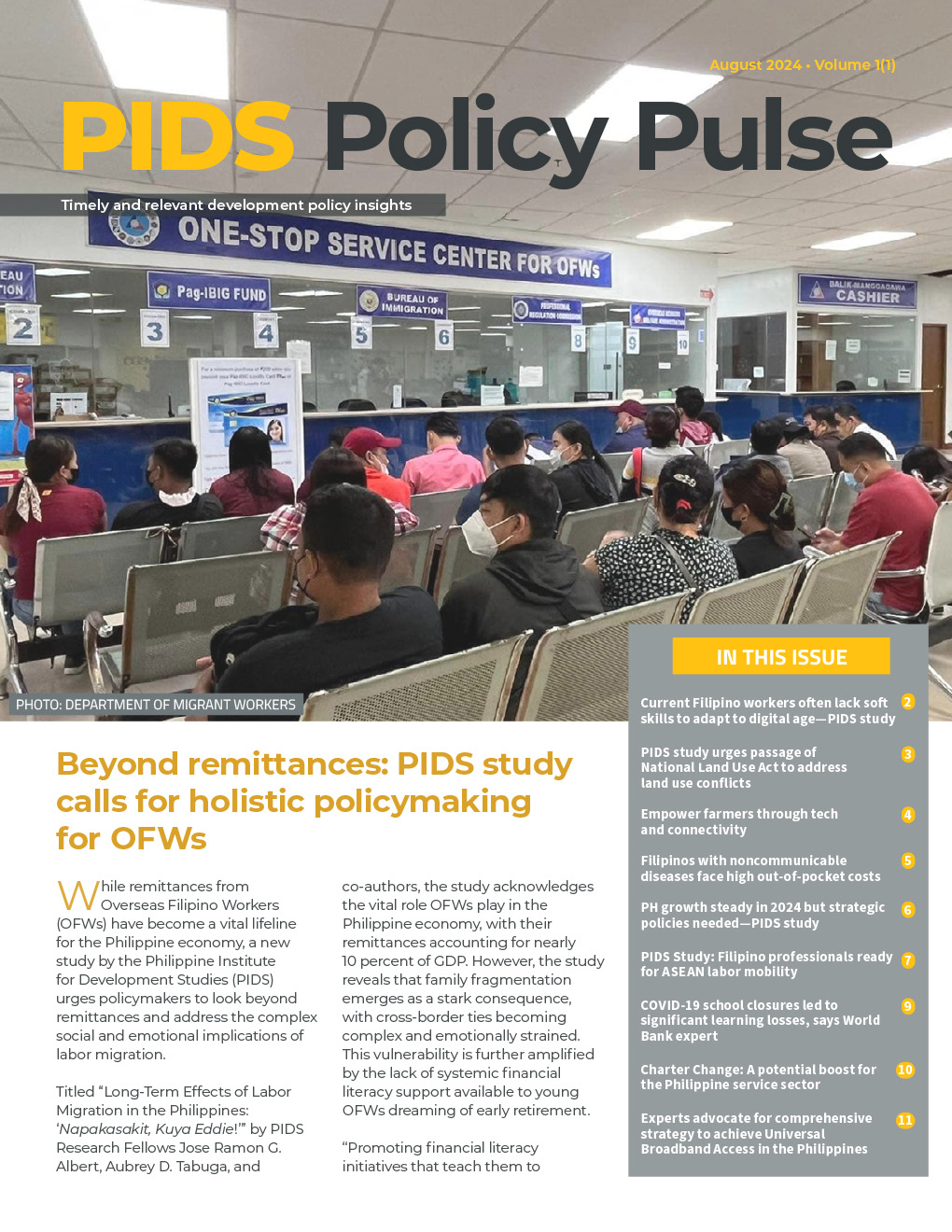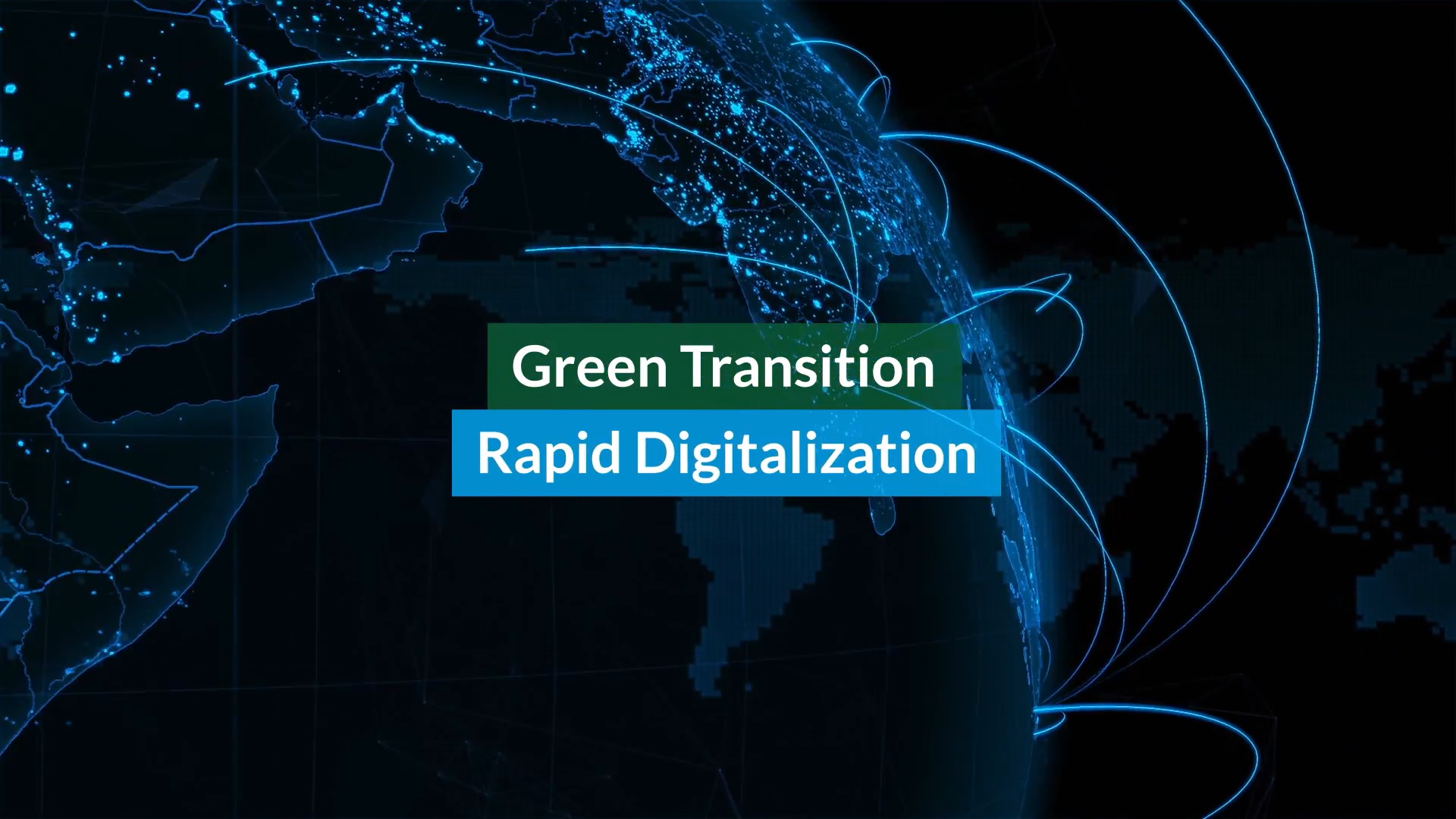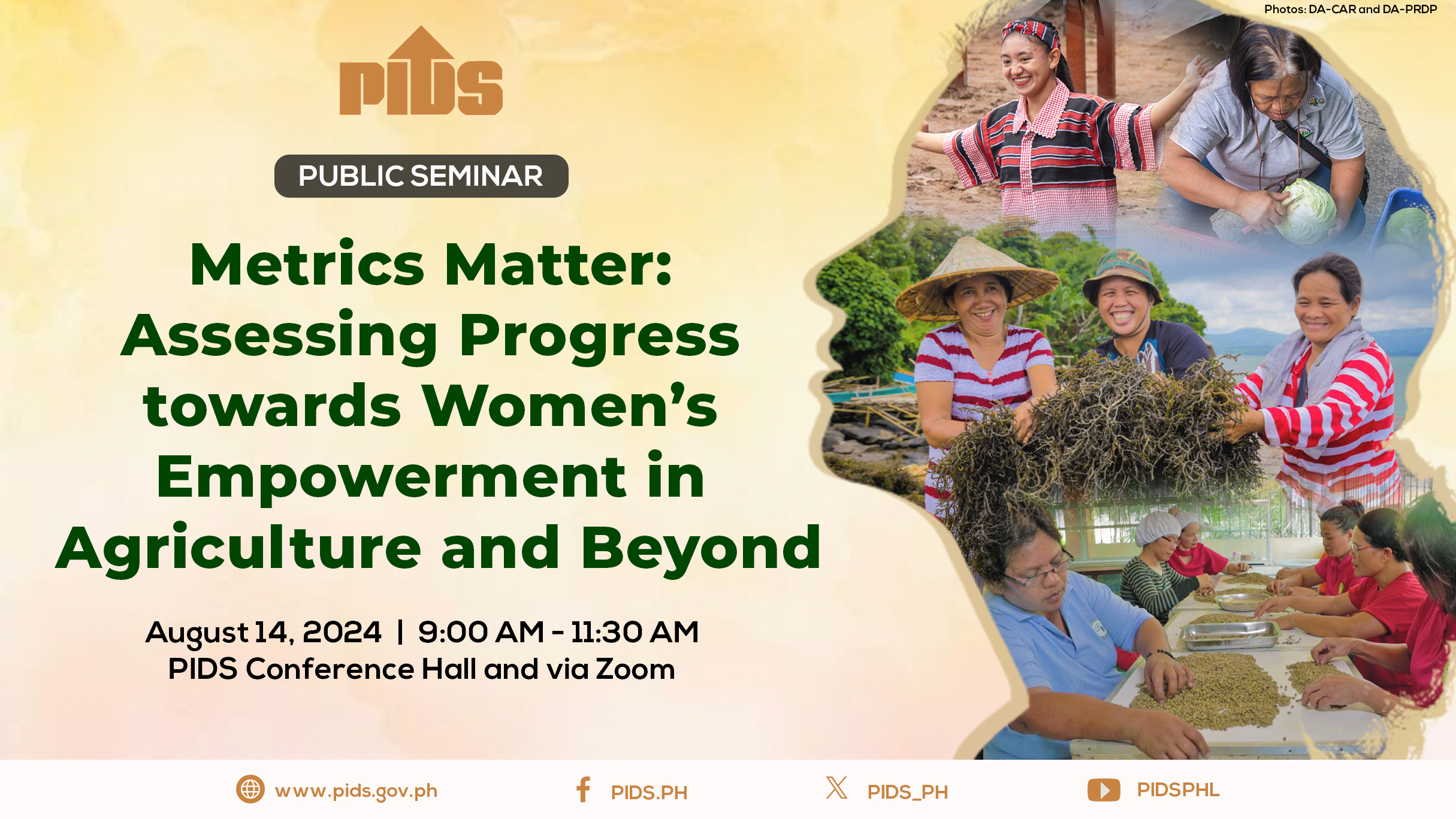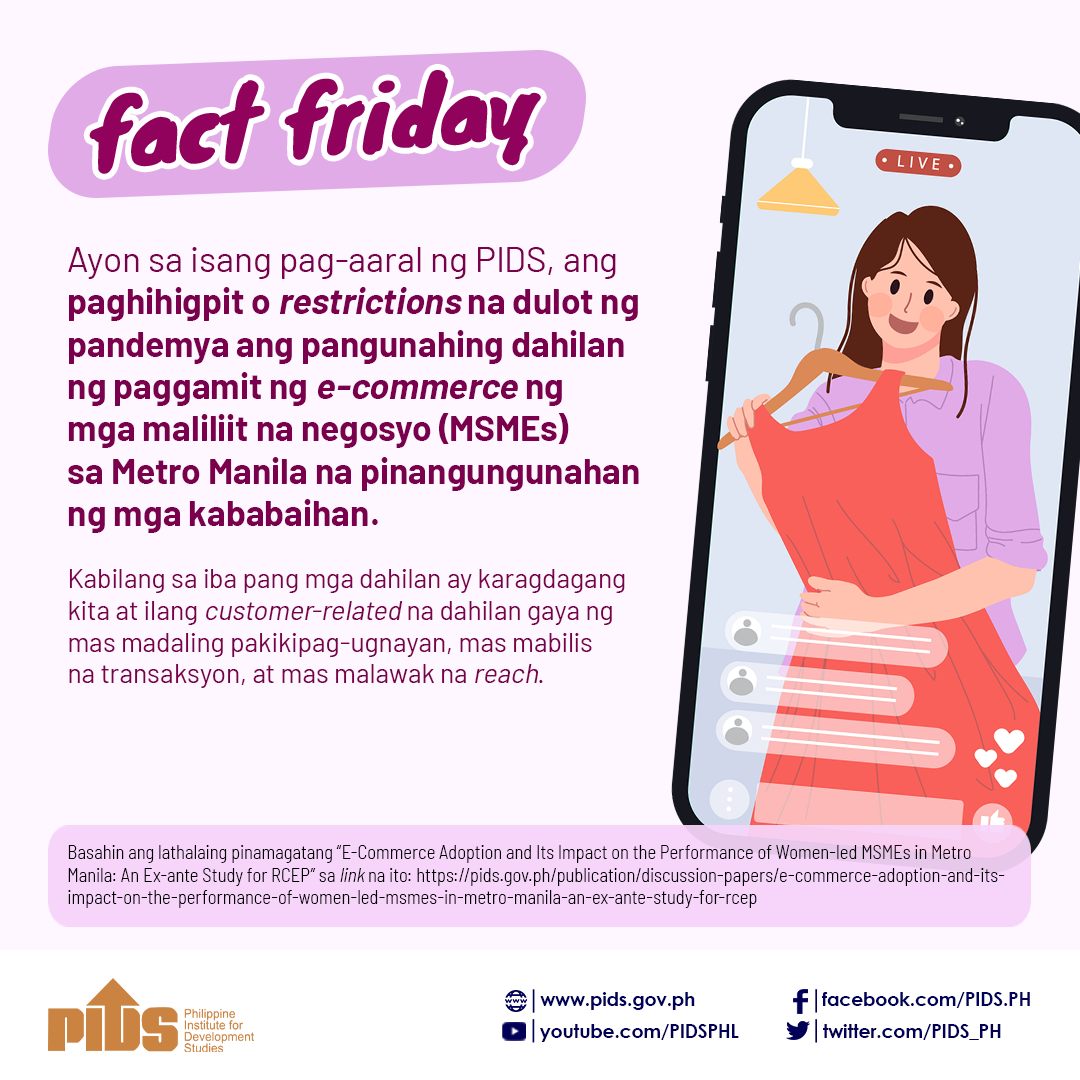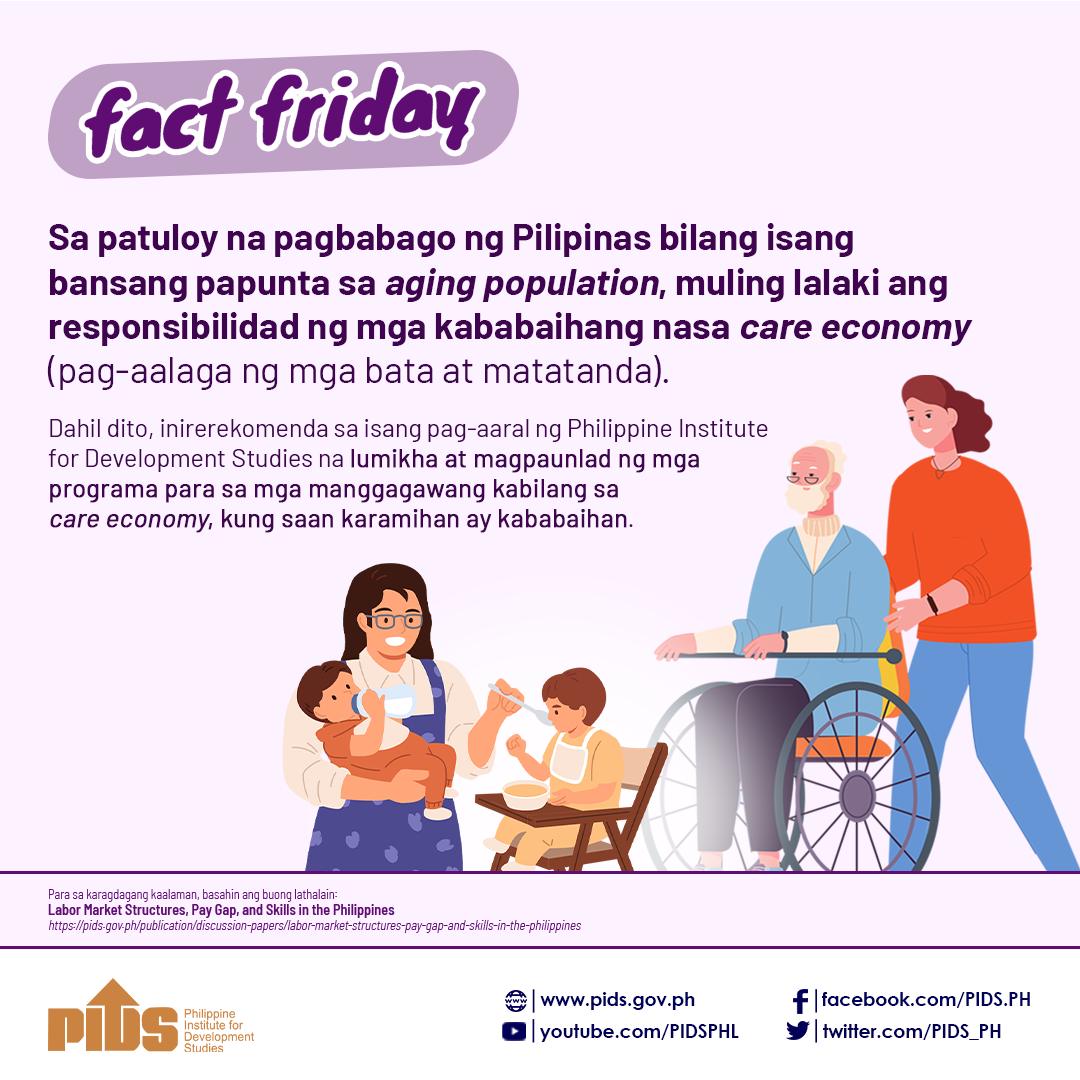MANILA, March 21 -- Filipino women engaged in livelihood-related activities should be assisted more by the government and the business sector tofurther realize their full economic potential, state think-tank Philippine Institute for Development Studies (PIDS) said in a recently-published two policy notes.
As part of the country’s observance of Women’s Month this, the PIDS has released two papers on women entrepreneurs as outputs of the APEC 2015 Research Project commissioned by the Department of Foreign Affairs.
The author and concurrent PIDS consultant, Lucita Lazo, explored the difficulties women entrepreneurs face in the Philippines, and offered recommendations, to help women entrepreneurs scale up their business ventures as the ASEAN integration and freer trade are becoming more a reality than a concept.
Although the Philippines has repeatedly been commended for its women’s empowerment efforts which resulted in good reviews from several international gender indices and local literacy rate surveys, which in fact shows that Filipino women outperform Filipino men, experts say that "translating these capabilities into business and leadership opportunities is still a work in progress,” the author said.
There are more educated Filipino women, yet men’s employment still exceeds women’s significantly, and the country boasts of having the highest ratio of female-to-male business leaders, yet, the papers said, "opportunities for women continue to be held back by oppressive conditions, and most of all, by persistent economic inequality.”
In her first paper, "Challenges in the economic participation of women as entrepreneurs,” Lazo cited a survey by the Department of Trade and Industry (DTI) in 2009 showing that women make up 54 percent of small and medium enterprises (SMEs), which are known to be the foremost economic vehicle for generating employment.
The Global Entrepreneurship Monitor Survey in 2006-2007, Lazo also noted has ranked the Philippines second highest for having entrepreneurially active women.
However, according to Lazo, these positive recognitions are endangered limited access to resources; the sustainability of their businesses; lack of a business discipline, preparation and readiness for changing economic outlooks; lack of women representatives on decision making levels; lack of access to health and socio-legal protection; and a simple lack of information for a nuanced understanding on the part of leaders and policymakers.
Although the government projects were designed to provide information, service facilities, technology, and innovation to women in SMEs and microenterprises, "access [to all of these] is weakened by a network of problems,” she said.
"Women are most vulnerable to cultural and economic hindrances that often force them to choose their families over their businesses,” Lazo said, adding that their [women] independent access to finance is restricted without their husband’s consent, as indicated by the Family Code.
The author also cited DTI document which shows that more women register businesses, but more men renew licenses. Women’s decision are affected the most by health risks, economic instabilities and catastrophes, making them altogether less able to sustain their businesses, the policy note also said.
The author explained that the lack of organization and representation of women entrepreneurs and ‘bureaucratic firewalls’ only exacerbate the situation.
Lazo’s second policy note actually contains the policy recommendations for both the national and regional level, titled "Promoting women’s participation in the APEC economies: some recommendations.”
In it, she argued that the "merit often predominates all other judgment, and purveyors don a ‘blind’ attitude toward gender issues.”
"Where agency heads perceive gender as inconsequential or unrelated to their respective agency mandates, the talk of gender will not walk far enough to reach the frontlines where it matters,” Lazo said, explaining further that "if policymakers see the link between gender and national productivity and wealth creation, the case for gender will become a more attractive position.”
She identified three goals for policymaking at the national level which include empowerment, enhancing competitiveness, and ensuring sustainability and resilience.
According to her, leaders can empower women entrepreneurs by eliminating barriers to accessing resources, skills, protection, and other opportunities that allow women to build up the readiness, sustainability, and competitiveness of their businesses.
On the other hand, local leaders play an important role if they can provide services such as financial services, counseling, and strengthening linkages through trade fairs and training seminars, Lazo also said.
She specifically recommends incentivizing business registration with access to "the supply chain of government procurement programs.”
On enhancing competitiveness, "leaders must also tap information and communication technologies as part of a comprehensive capacity development,” Lazo said, adding the need to instill business discipline, ingenuity, and creativity in women entrepreneurs, the very values essential to remain competitive.
For her final recommendation, Lazo said that national policymakers have to create social safety nets, such as improving access to credit and healthcare, to encourage women to sustain their business ventures and withstand threats of instability and catastrophes.
In her conclusion, the author asserts that the economic contributions of Filipino women are not being harnessed to the fullest because of cultural and economic setbacks.
"The rate of women who leave the country seeking better jobs for their family offsets the notion that the Philippines is a progressively equal opportunities country,” Lazo said. (ASD/MnB/OpCen)

